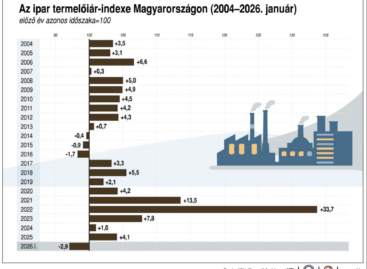The Greek investor received a red light: the future of Alföldi Tej is uncertain
On September 16, Minister for National Economy Márton Nagy announced that the government blocked the acquisition of Alföldi Tej Ltd.. According to sources familiar with the deal, the buyer would have been Hellenic Dairies, owned by the Szarantisz family, active in 50 countries and one of the most profitable companies in the European dairy sector. The financially strong investor intended to acquire 100 percent of Alföldi Tej. The topic is further explored by Telex.
Loss-making operations, indebted company
Headquartered in Székesfehérvár, Alföldi Tej employs more than 700 people and processes 270 million liters of milk annually in its two plants. In 2024, it posted revenues of HUF 74.6 billion but recorded a HUF 1.9 billion loss, burdened by nearly HUF 25 billion in liabilities. The company’s ownership structure consists of Hungarian dairy producers and cooperatives, who viewed the Greek offer as a lifeline.
Government’s reasoning
According to the ministry’s statement, safeguarding domestic food supply security justified the veto decision. The Ministry for National Economy argued that Alföldi accounts for around 20 percent of Hungary’s raw milk procurement, and there was a risk that raw milk could be exported while well-known brands might disappear from Hungarian store shelves. Although the regulation enabling the ban has since expired, the sellers offered the state the opportunity to acquire the company under the same terms as the Greek investor.
Open questions in the market
State involvement appears likely, as without it the company’s financial situation could make continued operations unsustainable. However, it remains uncertain whether keeping a loss-making company in state hands is beneficial for the sector in the long term. Industry insiders point out that the Hungarian dairy sector as a whole is characterized by low profitability and high import dependency, while several major players – Sole-Mizo, Tolnatej, Kőröstej, Friesland, Savencia – remain stable and could even emerge as potential buyers.
The future of Alföldi Tej therefore remains uncertain. The coming months will determine whether it stays under state ownership or passes to a new strategic investor.
Related news
How does the forint exchange rate affect consumer prices?
🎧 Hallgasd a cikket: Lejátszás Szünet Folytatás Leállítás Nyelv: Auto…
Read more >KSH: In January 2026, industrial producer prices were on average 2.9 percent lower than a year earlier and 0.9 percent higher than the previous month
🎧 Hallgasd a cikket: Lejátszás Szünet Folytatás Leállítás Nyelv: Auto…
Read more >The GKI business climate index rose in February
🎧 Hallgasd a cikket: Lejátszás Szünet Folytatás Leállítás Nyelv: Auto…
Read more >Related news
How does the forint exchange rate affect consumer prices?
🎧 Hallgasd a cikket: Lejátszás Szünet Folytatás Leállítás Nyelv: Auto…
Read more >HELL CITY has arrived, led by Michele Morrone
🎧 Hallgasd a cikket: Lejátszás Szünet Folytatás Leállítás Nyelv: Auto…
Read more >Two million people have already voted, so 57 million forints will be given to locals in 125 settlements, courtesy of Tesco
🎧 Hallgasd a cikket: Lejátszás Szünet Folytatás Leállítás Nyelv: Auto…
Read more >







